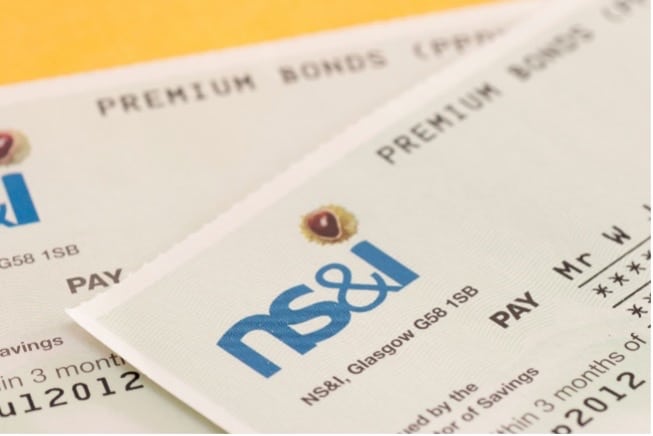Premium Bonds work as an emergency savings pot, offer tax-free prizes, and a safe tax savings pot. They’re also unlikely to be meddled with anytime soon.

Picture the scene.
It’s 2008.
Interest rates have dropped below 1%, and will remain there for over a decade, only slowly starting to creep up in December 2021. The markets are a bloodbath, house prices are falling, and virtually every investment is crashing as a result of a credit crunch caused by the global financial crisis.
Then there’s Pete and Kate Dursley. Neither party trusts the stock market, and the couple have paid off their modest two-up two-down house somewhere in the backend of the Midlands. And both have saved the maximum possible — at the time — in Premium Bonds, of £40,000 each. Their money is relatively safe from erosion as CPI inflation stands at just below 4%.
And while their friends invested elsewhere suffer financial penury, the Dursleys are doing very well for themselves, thank-you very much. Their bonds are safe, and they will continue to benefit from the chance of ‘winning’ cash prizes every month.
Of course, these winnings are really variable interest pay-outs on savings. From here-on-out, sub-optimal interest rates coupled with inflation creates a financial aberration whereby this couple lose out massively compared to stock market returns over the next decade or so.
For context, a single £1 bond held a chance of winning a prize of just 36,000 to 1 at the start of 2009. Meanwhile, long-term investors benefitted hugely from the S&P 500’s 8% average annual return between 1952 and 2022, or the FTSE 100’s laudable dividend companies.
But the UK’s base rate now stands at 4%. With more rises on the way, the Premium Bonds prize rate now stands at 3.3% — a little above the top easy access savings rates.

Of course, short-term fixes at six or nine months will pay slightly higher than this, and it’s worth noting that people with typical luck — thanks MoneySavingExpert — won’t actually see this 3.3% return even with the maximum £50,000 invested over a year.
Long-time readers will understand my basic investing strategy. Invest a decent chunk of excess income into an S&P 500 tracker within a SIPP, and then throw the rest at high-risk growth stocks on the FTSE AIM market (often benefitting from EIS advantages), safe in the knowledge that retirement is taken care of.
It may come as a surprise then to see that I and my partner both currently hold — and will continue to hold — a sizeable sum in Premium Bonds. This is for a few reasons, and not all of them are objective.
The first — and most important — is that I strongly believe that any would-be investor should have a pot of at least four months’ worth of living expenses saved up as emergency savings. These savings should be easily accessible in the event of a crisis: for example, job loss, dental extraction, or even death.
It’s often in economic downturns when you may need to get emergency cash — and this is the worst time to cash out of the markets.

While Premium Bonds withdrawals themselves take an average of 2-3 days to hit your account, there is a simple workaround whereby you open a Direct Saver with NS&I for only £1, transfer Premium Bond funds to this account, and then withdraw to your bank account from there. Cash should then hit your account within a day.
The second is that the Personal Savings Allowance (interest you can earn before paying tax) is staying at £500 for higher rate taxpayers. This is becoming an easier threshold to hit as investors turn to cash and rates continue to increase. Assuming an already-filled £20,000 ISA allowance (remember to check if you qualify for a LISA), there is a small but growing number of people for whom Premium Bonds are a good bet from a taxation perspective.
The third is that the government seems to be greedily eyeing up SIPPs and ISAs like a hungry dog waiting under the kitchen table, staring at the two-year old’s lunch plate. Various potential changes may be coming — whether to lifetime allowances, annual deposit limits, FTSE AIM inheritance tax rules, or the 25% tax-free withdrawal rule for private pensions. And these changes may be retrospective.
I don’t have a crystal ball, but one tax-advantaged area that the government will be unlikely to touch is Premium Bonds, which is by far the UK’s most popular savings product, with 22 million people saving £119 billion in them.
The fourth — and underappreciated — is that as a self-employed person working through a limited company, I have to set aside cash for corporation tax, dividend tax, student loans, the high-income child benefit charge, and also VAT.
The tax system is ridiculously complex, and some of this cash in only on hand for a few months. I can’t lock it away for better returns. I can’t invest in the markets as then it will be HMRC and not my partner with a problem if it all goes wrong.
At the moment, Premium Bonds is beating easy access accounts, and I simply don’t have the time to spend checking which account may be marginally better from month to month. I’m running a business, not scrapping for that extra tenth of a percent.
There’s also the satisfaction of ‘winning’ prizes using money earmarked for taxes. It feels like I’m reducing my tax bill, though this is emotional pettiness rather than objective investing strategy.
And finally, there’s always the very outside chance of becoming a millionaire overnight.
This article has been prepared for information purposes only by Charles Archer. It does not constitute advice, and no party accepts any liability for either accuracy or for investing decisions made using the information provided.
Further, it is not intended for distribution to, or use by, any person in any country or jurisdiction where such distribution or use would be contrary to local law or regulation.
